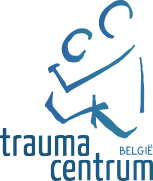Trauma therapy for couples
Relationship therapy is the most accepted method for the reducing relational distress and improving relationship quality addressing a wide range of specific relational dysfunctions and individual emotional and physical health problems.
Trauma therapy for couples aims to stabilization, security and effective conflict management as a starting point for the recovery process. In this safe context, partners work to build mutual sensitivity, learning to better regulate emotions and develop mentalizing skills. This allows them to not only better understand their own feelings and reactions, but also those of their partner.
In addition, the therapy aims to improve the restoration of trust and intimacy, focusing on emotional and physical connection. An important goal is also to improve communication so that both partners feel heard, understood and valued during their interactions. (Gusenkov, 2024).

Relationship Therapy
The four major phases
Developmental Couple Therapy for Complex Trauma (DCTCT)(MacIntosh, 2019).
Understanding and empathy
Within this phase, the emphasis is on increasing knowledge about trauma, its effects on individuals and relationships, and how both partners can respond. Understanding and empathy are crucial goals in this phase, as they lay a foundation for further cooperation and communication.
Improve communication
Within this phase, the couple learns practical skills to communicate more effectively. These may include techniques such as active listening, learning to express your feelings and needs.
Coping with symptoms together
Within this phase, both partners work together to effectively deal with symptoms of trauma, such as anxiety, avoidance, or irritability. This may involve identifying triggers and developing strategies to deal with them. Techniques are offered to keep trauma symptoms at bay. By addressing these challenges as a team, you not only reduce the impact of trauma effects on your relationship, but also strengthen the bond through shared experiences and mutual support.
Building more self-awareness
Within the consolidation phase, partners reflect on their personal growth and the development of their relationship during the therapy process. Self-awareness is strengthened through understanding personal triggers, emotions and reactions.
Increased self-awareness can lead to more thoughtful interactions and a better understanding of how you both contribute to the dynamics of the relationship.
Restore trust and intimacy
Here the focus is on rebuilding emotional and physical closeness and strengthening a loving relationship bond.
